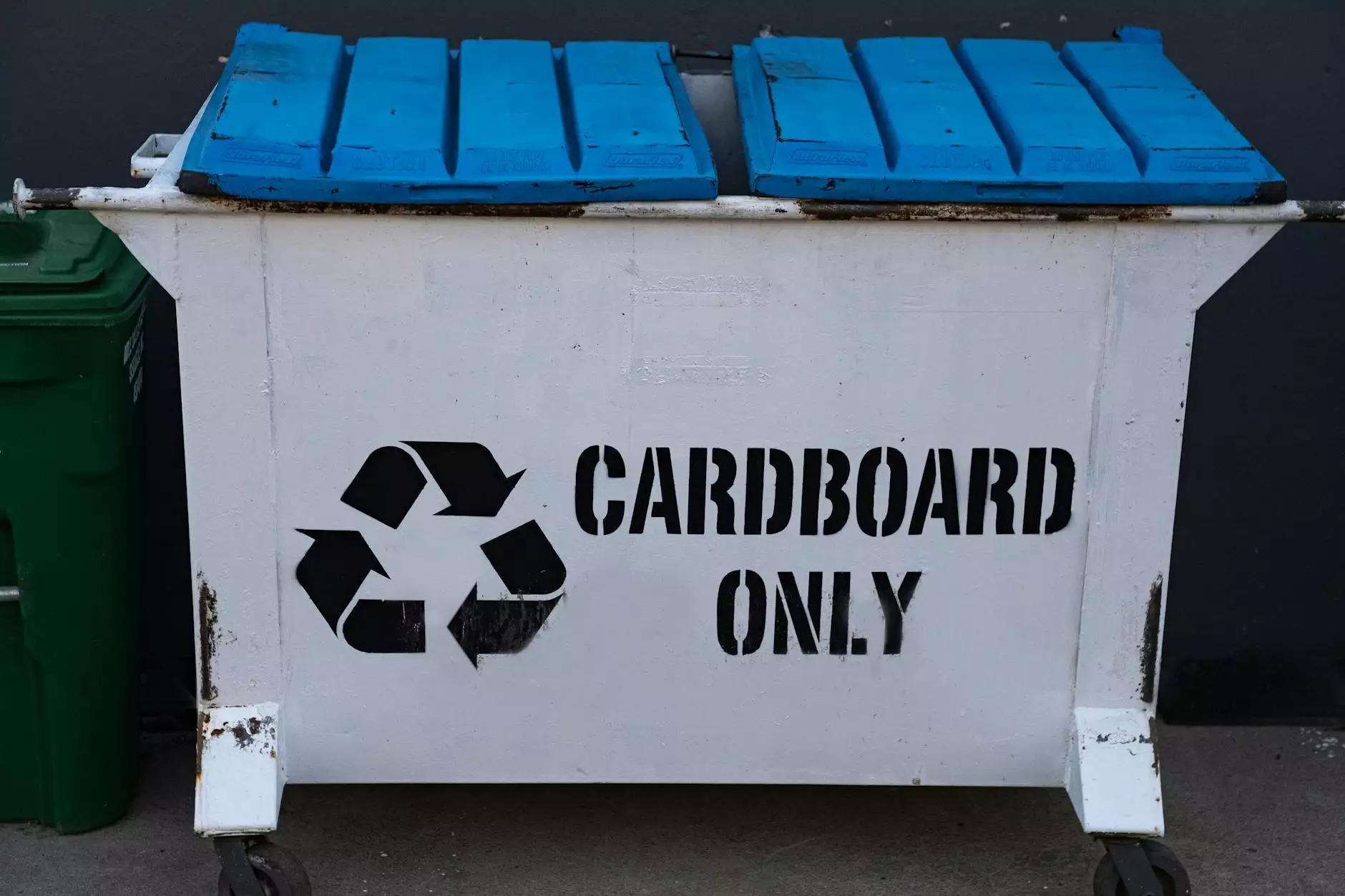What You Shouldn't Throw In the Dumpster
Blog
The Importance of Proper Waste Disposal
Meaningful Connections Brand Consulting recognizes the significance of responsible waste management in today's world. The improper disposal of certain items can have severe consequences for the environment, public health, and local communities. Our mission is to educate our clients and empower them to make informed decisions when it comes to waste disposal.
The Consequences of Incorrect Disposal
Throwing certain materials in the dumpster can lead to pollution, contamination, and potential harm to wildlife and human life. It is crucial to be aware of these consequences and take appropriate actions to minimize the negative impacts.
Chemicals and Hazardous Substances
Chemicals, such as paint thinner, batteries, and cleaning products, should never be disposed of in regular garbage bins. These substances can contaminate soil and water sources, posing significant risks to ecosystems and human health. It is important to utilize designated drop-off sites or programs for hazardous waste disposal.
Electronic Waste
Electronic waste, including old computers, televisions, and mobile phones, contains various toxic components such as lead, mercury, and cadmium. Dumping these items in landfills can result in the release of harmful substances into the environment. Many communities have electronic recycling programs in place to ensure proper disposal of these items.
Construction Debris
Construction waste, such as concrete, asbestos, and insulation materials, should never be thrown in regular dumpsters as they often require special handling procedures. These materials can release hazardous substances and contribute to air and water pollution. It is essential to consult with professional waste management services to ensure proper disposal of construction debris.
Medical Waste
Medical waste, including syringes, expired medications, and used bandages, can pose serious health risks if mishandled. These materials may contain infectious agents or dangerous chemicals, making them unsuitable for regular waste disposal. Healthcare facilities and individuals should follow specific guidelines for disposing of medical waste to prevent potential harm.
Alternatives to Dumping
Instead of throwing certain items in the dumpster, consider alternative methods of disposal that are more environmentally friendly and socially responsible.
Recycling
Recycling is an effective way to reduce waste and conserve resources. Many materials, such as paper, plastics, glass, and metals, can be recycled and transformed into new products. Familiarize yourself with your local recycling guidelines and make use of recycling programs available in your area.
Donation and Reuse
Items that are in good condition but no longer needed can be donated or reused. Organizations and charitable institutions often accept donations of clothing, furniture, electronics, and other household items. By giving these items a second life, you contribute to reducing waste and helping those in need.
Specialized Disposal Services
For items that require specific disposal methods, contact specialized disposal services in your area. These services have the expertise and resources to handle various types of waste, ensuring it is managed safely and responsibly.
Conclusion
Proper waste disposal is crucial to protect our environment and promote sustainable practices. Understanding what should not be thrown in the dumpster and seeking alternative disposal methods is essential for responsible waste management. Meaningful Connections Brand Consulting is dedicated to providing valuable insights and guidance in the field of waste management and encourages everyone to make informed choices when it comes to disposing of various materials.




